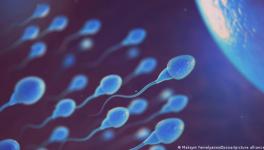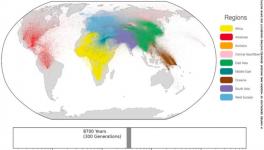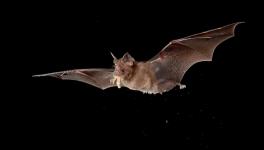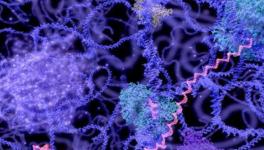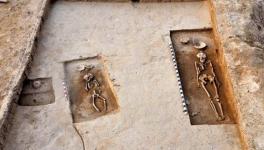Does the Father’s Lifestyle Influence the Offspring’s Health?
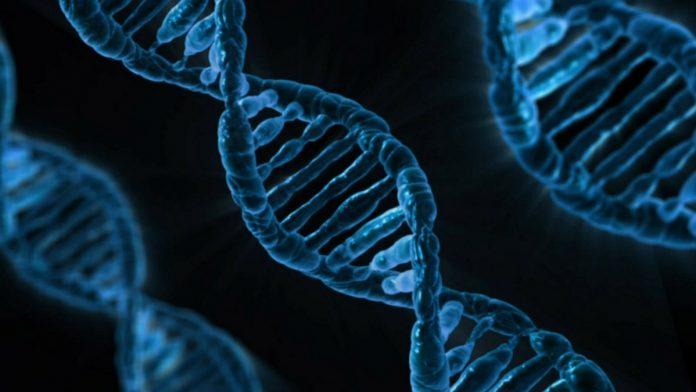
representational image.Image Courtesy: Pixabay
The traditional understanding about inheritance has long been centered around DNA, the molecule in our cells carrying forward genetic information from parents to the offspring. DNA carries information which guides an organism through its development. An aberrant piece of information encoded in the parent’s DNA could lead to disease or abnormal development in the offspring.
However, with modern biological research flourishing, it is now becoming clearer that DNA is only a part of our inheritance story. There are mechanisms other than our DNA that impact inheritance: the parent’s lifestyle, diet, stress, weight etc. can also have an impact on health consequences of the offspring.
Another important aspect needs revision here. Genetic changes, or mutations in the germ cells, can only be passed to the next generation. It means that changes in the DNA of the germ cells are being passed to the offspring. The changes in DNA, or mutations in the somatic cells, are not passed on to the off-spring. The germ cells are the reproductive cells – sperm in male and egg cells in females. The somatic cells are those other than the germ cells. Again, any genetic change or mutation is a long process, sometimes spanning thousands of years. The lifestyle or environment-induced changes in parents are passed on to the offspring via a different non-DNA based mechanism. This occurs through epigenetic-heritable changes, which does not involve alterations in the DNA.
Elaborating on what epigenetics means, the CDC (Centre for Disease Control and Prevention) says: “Epigenetics is the study of how your behaviours and environment can cause changes that affect the way your genes work. Unlike genetic changes, epigenetic changes are reversible and do not change your DNA sequence, but they can change how your body reads a DNA sequence.”
Epigenetics determines how a person changes the behaviour of their gene functions. These are inheritable traits that influence the offspring’s health and development. However, questions about how the epigenetic information is passed during fertilisation and how the molecules in germ cells are involved in the process have remained largely answered.
A recent study published on March 16 in the science journal Cell has thrown new light on these issues. The study identified how environmental information is passed on by non-DNA molecules in the sperm cell – the germ cell in males. It has been talked of as having a significant contribution in enhancing the understanding of how paternal experiences are passed on to the offspring.
The group of researchers at McGill University fed male mice a diet deficient in folate (also known as vitamin B₉). They traced the effect the diet had in some crucial proteins associated with DNA. There are certain important proteins that play a vital role in the process of gene expression. The group studied how a diet pattern can influence proteins associated with DNA.
They discovered that a folate-deficient diet changes the Histone proteins, especially a group of molecules (known as the methyl group) associated with Histones. The Histones are important proteins that pack long DNA into the limited space of a cell. A DNA molecule is so long that it is impossible to accommodate in a human cell. Histones make this impossible task possible.
The diet induced changes in the methyl groups associated with Histone in sperm cells can be transmitted to the embryo. The alterations in the methyl group of Histones led to alterations in the gene expression of the embryos. This resulted in birth defects of the spine and the skull.
Commenting on the findings, Ariane Lismer, a PhD candidate and the lead author of the study, reportedly said: “When we first started seeing the results, it was exciting, because no one has been able to track how those heritable environmental signatures are transmitted from the sperm to the embryo before. It was especially rewarding because it was very challenging to work at the molecular level of the embryo, just because you have so few cells available for epigenomic analysis. It is only thanks to new technology and epigenetic tools that we were able to arrive at these results.”
“The big breakthrough with this study is that it has identified a non-DNA based means by which sperm remember a father’s environment (diet) and transmit that information to the embryo,” said Dr. Sarah Kimmins, a senior author of the study and the Canada Research Chair in Epigenetics, Reproduction and Development.
“It is remarkable, as it presents a major shift from what is known about heritability and disease from being solely DNA-based, to one that now includes sperm proteins. This study opens the door to the possibility that the key to understanding and preventing certain diseases could involve proteins in sperm,” she further added.
Get the latest reports & analysis with people's perspective on Protests, movements & deep analytical videos, discussions of the current affairs in your Telegram app. Subscribe to NewsClick's Telegram channel & get Real-Time updates on stories, as they get published on our website.










